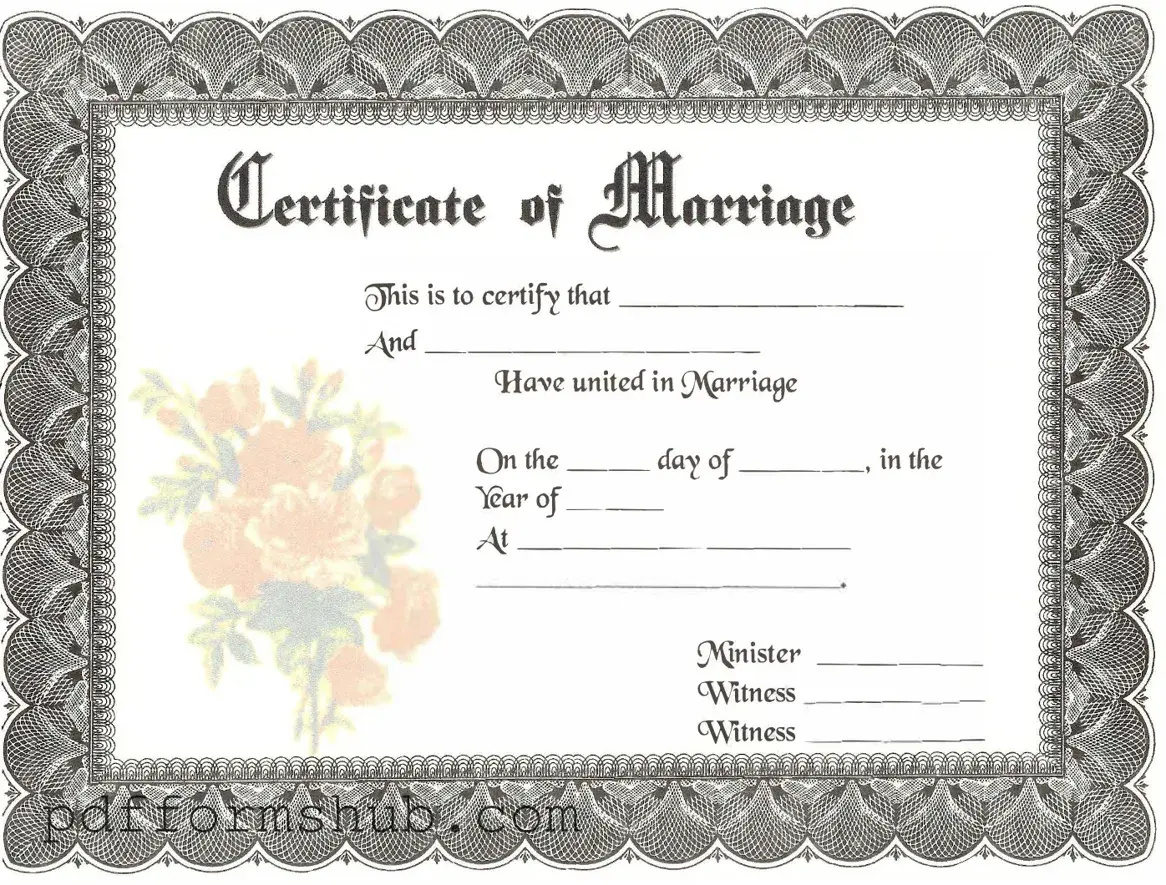Fill in Your Marriage Certificate Form
A Marriage Certificate form is an official document that validates the union between two individuals. It serves as proof of marriage and is often required for legal and administrative purposes. Understanding how to fill out this form correctly is essential for ensuring your marriage is recognized by the state.
Ready to get started? Click the button below to fill out the Marriage Certificate form.
Customize Form

Fill in Your Marriage Certificate Form
Customize Form

Customize Form
or
Free PDF Form
Short deadline? Complete this form now
Complete Marriage Certificate online without printing hassles.